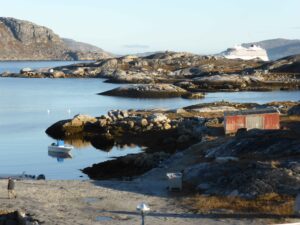
Stuck out in the North Atlantic on a cruise ship that was dodging the weather last autumn, I found myself thinking about just how much we take our world for granted. This year, an exceptionally active hurricane season has affected both sea and land. The impact on the land is well documented in news broadcasts. That over the sea might be considered to be less but, it can be significant nonetheless.
We still rely on marine transport systems for many goods to travel from one continent to another. Tourism, and in particular the cruise industry, has become a major economic force. Itineraries are drawn up under the assumption that the journey from one exotic destination to another will be ‘plain sailing’. The ironic significance of the phrase is no longer lost on me, though one has, perhaps, to experience severe travel disruption before its impact in the days of sail can be fully realised.
When a cruise vessel has to change plans, the knock on effect is twofold. Firstly, there is the ship: those on board find that their holiday plans remain unfulfilled, while the company may see its profits dwindle as alternative plans, and routes, are put into place. Secondly, there are the communities that were set to play host. Many of these are surprisingly small, often with fragile economies. Tours are cancelled, guides have an unexpected day off, there is likely to be a glut of cake and scones as cafes face up to a lack of expected customers.
Somehow, it comes as a shock to everyone.
And yet, the weather remains one aspect of the modern globe that we cannot control. Surely we should not be surprised. The last few decades have been, on balance, pretty stable. Perhaps we have been lulled into a false sense of security. Or superiority. Travel, and transport, are part of the foundations of twenty-first century society and we have come to take it for granted that they will work as planned. I doubt that the Norse seafarers who crossed this section of the ocean with monotonous regularity felt quite the same. Neither, I suspect, did the crews of the clippers and other sailing vessels who worked their way across the seas. Much less the prehistoric groups who made their way along the coasts of northwest Europe at the end of the Ice Age.
I feel that one, unlooked for, aspect by which one might define society today and contrast it with earlier communities, is that we have become arrogant. Somehow I don’t think that they had quite such unshakeable belief that their technologies could master whatever the world might throw at them. Yes, they built endless stone circles, ceremonial centres and sacred places through which we assume they sought to propitiate their gods and ensure the future of the human race. But somehow one gets the impression that they were working with the world rather than against it. They encompassed a degree of flexibility in their lives. We, in contrast, seem to have set ourselves up against the forces of nature. And we are less flexible.
I’d prefer to return to a broader view of the world and our place in it. It might be a slower path, the outcome might be more uncertain, but it is, I think, the only way that our future can be assured.
You must be logged in to post a comment.